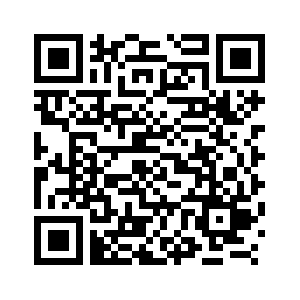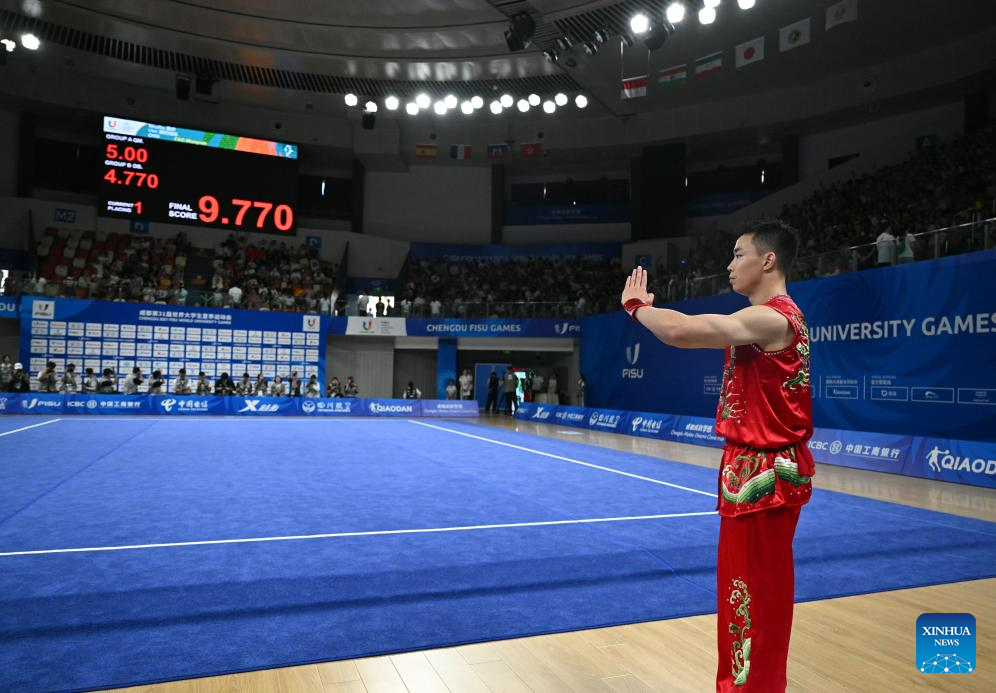
Cao Maoyuan of China acknowledges the spectators after competing in the Wushu Men's Nanquan at the 31st FISU Summer World University Games in Chengdu, southwest China's Sichuan Province, July 29, 2023. (Xinhua/Cai Xiangxin)
by sportswriters He Leijing, Yao Youming and Ma Sijia
CHENGDU, July 29 (Xinhua) -- China's Wushu athlete Cao Maoyuan, the odds-on favorite for the men's Nanquan, successfully nailed the first gold medal of the FISU World University Games here on Saturday.
Buoyed by the encouraging results in his former national competitions, the home favorite has made no secret of his goal to stand on the podium in the world's largest sporting event for student-athletes.
"We have very specific training plan every day, so I'm confident if I show my best, I will get that (gold medal)," Cao said in an interview before the Games.
But when the Sichuan native was presented the gold medal, he was still in tears, as spectators at the Chengbei Gymnasium in Chengdu rose to their feet with loud applause and cheers.
With the audience exclaiming "Xiongqi" in Sichuan dialect, meaning "Come on" in English, Cao seemed to take in some extra energy, keeping releasing his roars to perfect his movements and punches in the spurt of performance that lasted only less than three minutes.
The top contender, beyond all doubt, staged a dazzling performance and claimed the championship with an awesome 9.770 points among the ten athletes, as the runner-up and the third place finisher obtained 9.570 points and 9.566 points, respectively.
"When athletes begin to perform, they set an imaginary enemy in their minds, and show the connotation of offense and defense with different movements and punches," said Yu Bo, Cao's coach, adding that the judges would score on drills, choreography and difficulty.
In his first international competition, Cao admitted that he was both very nervous and excited when entering the gymnasium.
"To be able to compete up to my normal level in this kind of competition is really good. And I did it," he said after the competition.
Born and raised in Sichuan's Neijiang City, Cao from Chengdu Sport University was also the torchbearer of the Games.
"The Universiade has provided such a great platform, and what I can do is to try my best to present my best form, and to fight for the top honor," the 26-year-old said.
Cao's mother Tang Rong said that Cao was lucky to enter the Universiade and has been practicing Wushu for over 20 years.
"He loves Wushu so much that he always thinks about the movements and skills even when having dinner," said Tang, adding that she was so pound of her boy.
Like many other children, Cao planted the seeds of learning Wushu at an early age when watching action movies and TV dramas. And he persevered, showcasing his talent for the sport during the day-to-day training.
"He can do anything," said Heng Jinwei, Cao's first Wushu coach in his hometown. "When he was a child, he was particularly passionate about Wushu, and I can tell that he was outstanding in everything in terms of body coordination and movements."
"Wushu just refreshes me and gives me power every single day," Cao said.
The young talented athlete will also flex his muscles in the men's Nangun routine competition on Sunday, with hopes of repeating his remarkable triumph. ■
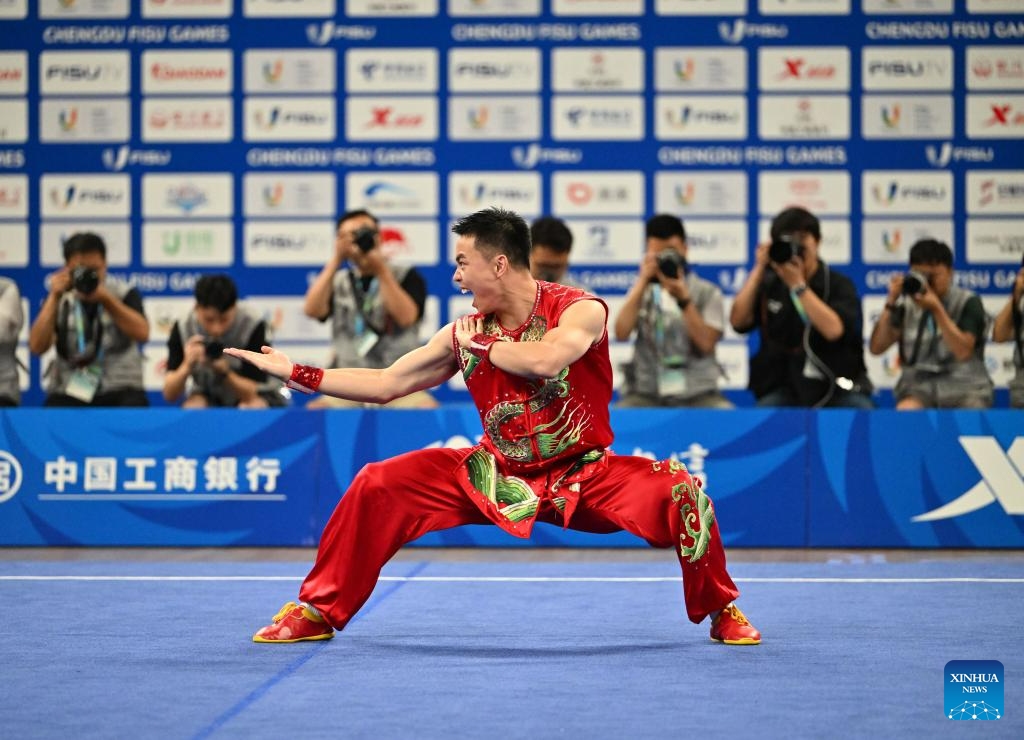
Cao Maoyuan of China competes during the Wushu Men's Nanquan at the 31st FISU Summer World University Games in Chengdu, southwest China's Sichuan Province, July 29, 2023. (Xinhua/Cai Xiangxin)
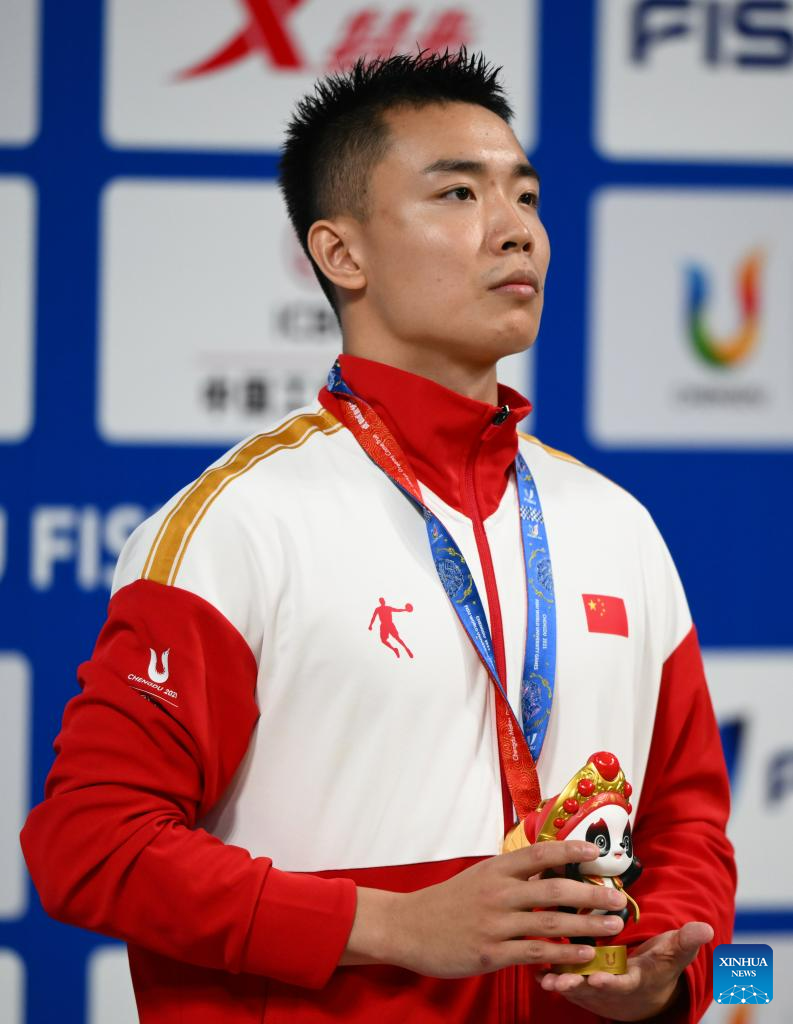
Cao Maoyuan of China reacts during the medal ceremony for the Wushu Men's Nanquan at the 31st FISU Summer World University Games in Chengdu, southwest China's Sichuan Province, July 29, 2023. (Xinhua/Wu Gang)
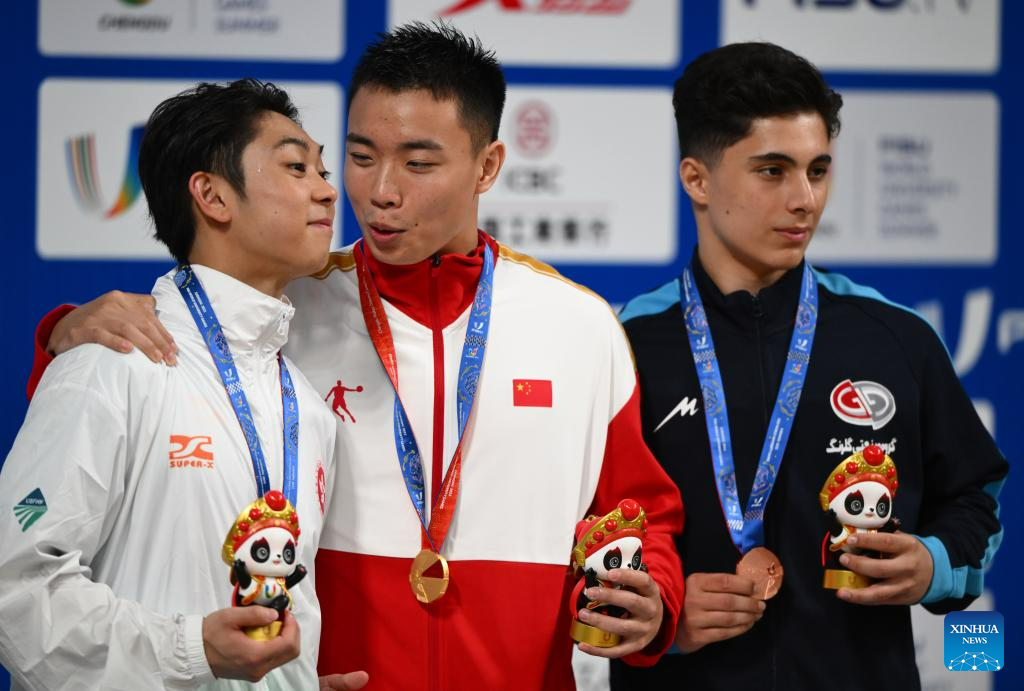
Cao Maoyuan (C) of China, Lau Chi Lung (L) of China's Hong Kong and Shahin Banitalebi of Iran react during the medal ceremony for the Wushu Men's Nanquan at the 31st FISU Summer World University Games in Chengdu, southwest China's Sichuan Province, July 29, 2023. (Xinhua/Wu Gang)
